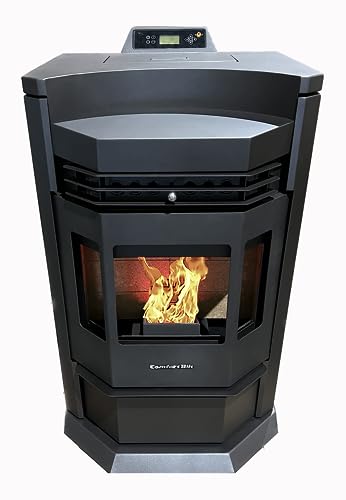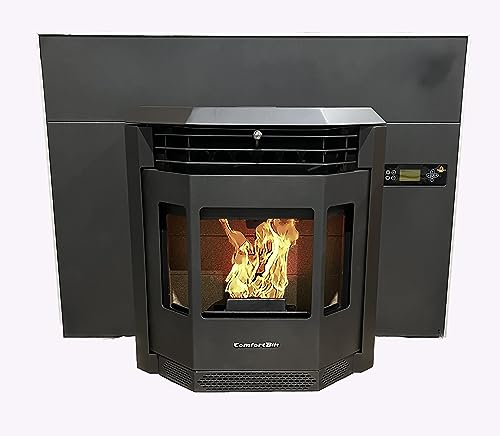15 Best Pellet Stoves For Rvs Bloggers You Must Follow
페이지 정보
작성자 Arnoldo Mulquin 댓글 0건 조회 4회 작성일 24-10-23 22:46본문
 Pellet Stoves For RVs Vs Wood Stoves
Pellet Stoves For RVs Vs Wood StovesRVs are a relaxing camping experience, however cold nights require a reliable heat source. Two options that are popular are wood stoves and pellet stoves. Both stoves have their own advantages however the best pellet Stove one is dependent on your particular needs and preferences.
Pellet stoves make use of bio-based fuels that are renewable, made of recycled sawdust and wood chips. They are highly efficient, and they offer consistent heating. They are simple to use, and they don't emit harmful emissions.
Heating that is cost-effective
Pellet stoves for rvs are an efficient alternative to propane-based heaters. They burn a bio-based fuel that is renewable and boast a high combustion efficiency that can save you money in the long run. They also consume less electricity, which reduces the carbon footprint and energy consumption. Additionally, pellet stoves have an incredibly compact design and can be used with any propane tank. They are a great option for those who don't want to deal with the hassle of the storage and refilling of propane tanks.
One of the most important characteristics of any stove is its capacity to provide heat to vast areas. A well-designed stove can heat an entire camper or motorhome. The best pellet stove inserts pellet stoves for RVs can produce up to 8000 BTUs of heat, enough to keep you warm and comfortable during your camping trip. Some models have thermostats that can be programmed that automatically turn off and on the stove based on your schedule. They also notify you when the pellets have run out or need cleaning.
Wood and pellet stoves are both very popular options for RVs and both provide excellent heating performance. They are also economical and are suitable for different climates. Before you make a decision you must be aware of the differences between the two kinds of stoves.
Wood stoves use wood for fuel, and it must be carefully gathered and stored. This can be a problem for those who travel in remote regions. Wood can also absorb moisture from the air, which can cause problems with the interior of your RV. However you can get various wood composite fire logs pressed for your stove in online retailers. These logs enable you to concentrate on your adventure instead of fueling.
Convenient cooking
Pellet stoves are perfect for campers who enjoy cooking. They are designed to extract the maximum amount of heat from the fuel, resulting in high energy efficiency and low heating costs. These stoves also feature automatic pellet feeding systems and thermostatic controls that maintain constant temperatures. Additionally, you can use them as a back-up heating source in the event of an emergency or power failure.
Wood stoves make for another popular option when camping in RVs. Wood stoves are an excellent option for boondocking or camping without hookups. However, they require constant attention and regular cleaning of ashes and creosote build-up. They also rely on firewood, which can be costly and difficult to locate in remote regions. They also require adequate ventilation to prevent the buildup of carbon monoxide and smoke in the camper.
Pellet stoves have the same heating capabilities as wood stoves and require less maintenance. They are also cheaper than gas heaters and produce less ash and particles. Pellet stoves can also be used as an eco-friendly energy source than wood stoves.
Pellet stoves are more convenient than wood-burning stoves, however, they require an electrical power supply. Your stove will not function effectively if electricity is not working. This could result in an unsafe situation. To ensure your safety and comfort, it's a great idea to have an emergency generator or plan for power outages. Most pellet and wood stoves are equipped with batteries or manual ignition systems to prevent these issues.
Multi-faceted
Wood pellet stoves are an excellent option for RVs as they are cost-effective and efficient in heating, as well as a cozy ambience. They can also be used as a backup in the event of a power failure. Certain models include an emergency battery backup system to ensure continued operation. Furthermore, pellet stoves are easy to operate and require minimal maintenance. It is important to remember that they require proper ventilation and installation.
In contrast to propane stoves, which introduce gases and moisture into the air, pellet stoves burn dry combustible material that creates clean, odorless heat. They are also more simple to use than traditional wood stoves, and they generate more heat in a shorter amount of time. pellet stove fireplace insert stoves aren't only excellent for heating but they can also be used to cook, transforming your RV into a fully-functional kitchen. This feature is especially useful in remote areas and can help you save money when eating out.
In addition to being more economical they are also safer than electric and gas models. They also emit less smoke, which reduces the risk of fire and indoor air pollution. However, be aware that they do require a certain amount of electricity to operate their automatic ignition and pellet feed systems. Additionally, they might require more frequent refills of pellets than gas stoves.
Before installing a wood stove in your RV, you should be aware of the limitations and factors. You'll also have to store the wood nearby and ensure that your RV has sufficient storage space for the stove hopper. Wood stoves can cause walls and ceilings to blister or warp. Consider a stove that has an insulation layer, or a surface protection kit.
Compact
Pellet stoves are able to be used quickly and are small. They are efficient in their combustion process and a powerful heat output, making them an ideal option for RVs. They distribute heat evenly, which makes for an enjoyable camping experience. You can easily control the amount of heat you wish to generate and maintain a constant temperature. The SoloWilder Camping Pellet Stove for instance, has a sturdy design and a well-designed heating system which makes it a fantastic option for campers.
The fuel hopper holds the pellets which are then fed into the burn pot via an auger. They are typically made from compressed sawdust and wood byproducts but some stoves also accept other types of biomass, like nutshells and corn kernels. The fuel is very dense, which allows it to burn clean and hot while reducing smoke and emissions. The stoves are energy efficient, with an energy efficiency that ranges from 70 to 83%.
Most pellet stoves are easy to maintain and are easier to operate and lighter than traditional wood stoves. They can be noisy and they require a place to store pellets that is dry and cool. They're also powered by electricity and require power (not suitable for camping off-grid). If you're thinking of buying the use of a pellet stove, select one that has an energy-efficiency certificate.
A disadvantage of pellet stoves is that they are more expensive than traditional fireplaces that burn wood and require a substantial storage space. A pellet stove can go through a 40-pound bag of pellets daily, and the bags can be costly. They also require electricity, which could drain the battery that powers your backup.
Safety
Pellet stoves allow you to enjoy a crackling fire in your RV without the need to store or transport firewood. They also produce less smoke and more ash than wood stoves and are easy to light. They also provide warmth and a cozy environment. However, it's crucial to understand the health considerations that come when using a pellet stove. For those with respiratory issues as well as older adults and children should be extra cautious before using a pellet stove.
Most models are equipped with an electronic control system that automatically delivers pellets into the combustion chamber which allows them to burn at the rate you prefer. Many of these stoves include a thermostat programmable to ensure the proper heating level. They also come with an automatic cleaning system that takes in the accumulated clinker or ashes.
But, despite these sophisticated features, a pellet stove requires ventilation and electricity to run. It could not function during a power loss. In such instances, you should have an alternate plan, like a generator for your heating needs.
Another concern about pellet stoves is the process of combustion that releases toxins and carbon monoxide into the air. This is a major concern for those who live with chronic respiratory diseases like asthma or COPD. Carbon monoxide detectors are vital for your home. They should be installed close to bedrooms, and on every level of the house and should be regularly tested for carbon monoxide.
Pellet stoves are a fantastic camping option, particularly for those who are in a location that has harsh winters. They are inexpensive and simple to use, but they do require power to operate. If you plan to camp off-grid it is important to ensure you have enough wood to fuel your stove.

댓글목록
등록된 댓글이 없습니다.